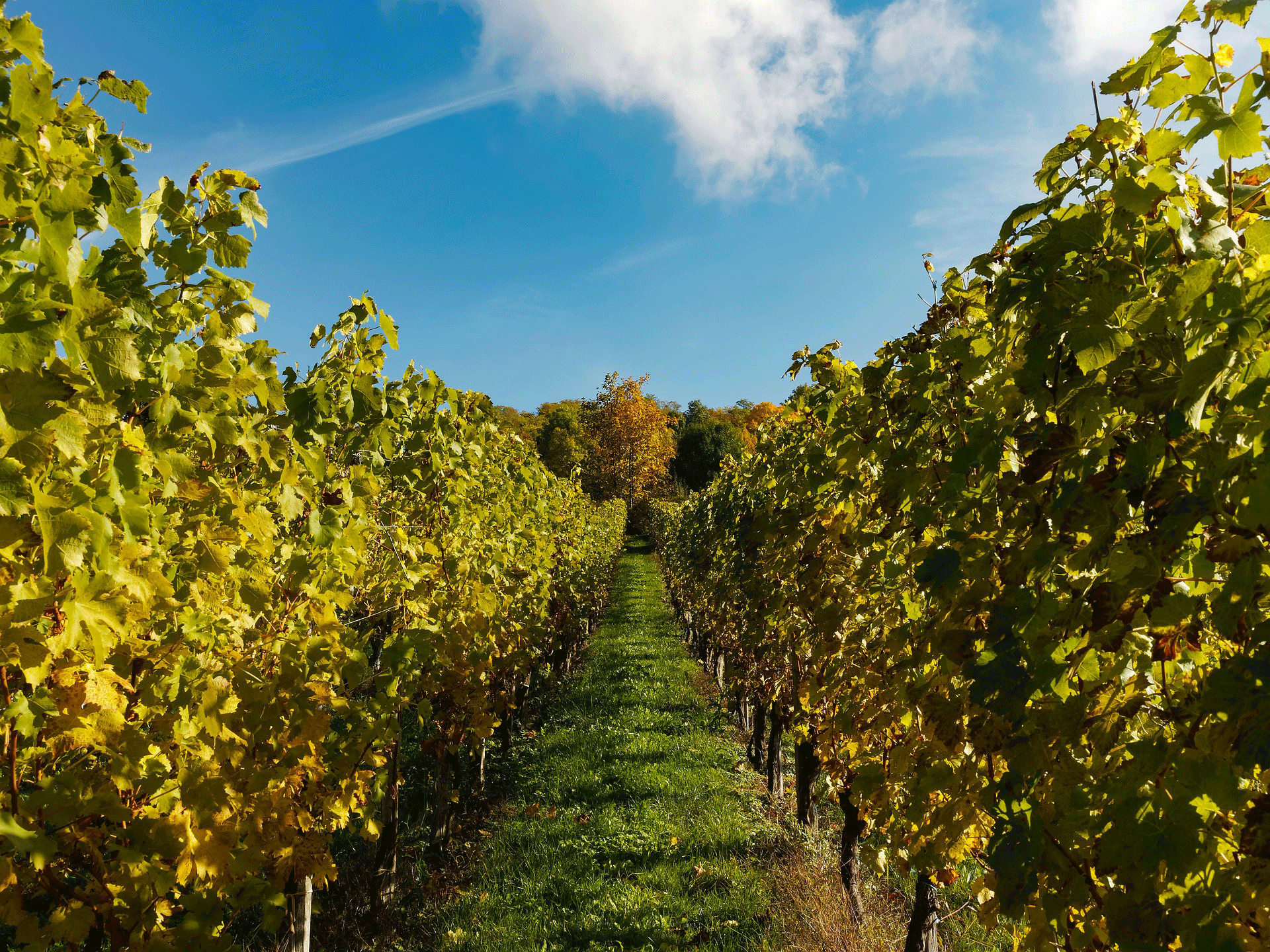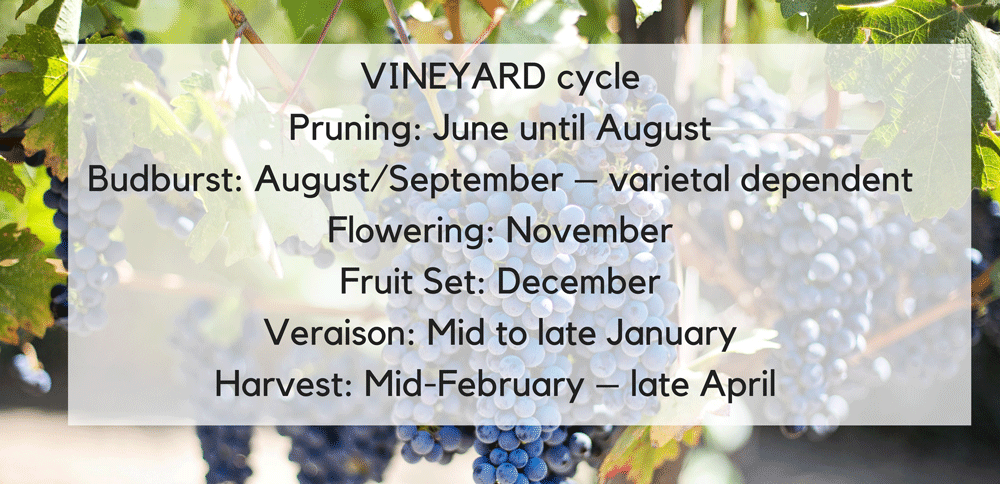
Jack Rabbit and associated vineyards are privileged to own more than 100 acres of vines spanning The Bellarine. Varietals include Sauvignon Blanc, Riesling, Pinot Gris, Chardonnay, Pinot Noir, Shiraz and Cabernet Sauvignon.
The Bellarine has its own unique ‘terroir’, the overall growing environment embracing both soil and climate. It is often referred to being somewhere in between the terroir of two of the most acclaimed wine growing regions in France, Burgundy and Bordeaux. Our region enjoys a cool maritime climate which embraces long, slow ripening periods and a moderate to low rainfall which results in relatively low yielding but high quality fruit.
Soil ranges from grey to pale sandy loam top soils and light yellow/orange sub soil over orange clays. Other vineyards in our fold feature thick, dark volcanic soils and basalt top soil testament to an extinct volcano, Mt. Bellarine. These soils and their surrounds imprint their own distinctive fingerprint on our wines, you really are ‘tasting the region’. Overall, very good water holding capacity and excellent top soil drainage facilitates exceptional viticultural environments.
Here on top of this majestic Bellarine hill, the Jack Rabbit property features four acres of vines planted to Pinot Noir and Cabernet respectively (just to the right of the Restaurant). The ‘aisle’ between these two signature vines is a popular pathway for Brides being ushered towards a spectacular coastal view altar to meet their betrothed.


The management of our vineyards is founded on sustainable principles – minimal interference, recycled vineyard matter as mulch, natural canopy protection as well as minimal usage of non-environment harming pesticides. Our vines are heavily culled to ensure low yields and maximum intensity of flavour. A lot of our wines are handpicked and often whole bunch pressed for the same reason. Wine quality is the monarch here, not volume. Average annual production for Jack Rabbit is approximately 5,000 x dozen bottles of wine.
The Jack Rabbit Vineyard Restaurant features state-of-the-art design, kitchen and recycling practices. The kitchen features best practice energy efficient appliances to ensure our carbon footprint is as minimal as possible. A rigid recycling program is strictly adhered to as is the programmed system for saving electricity in areas such as air conditioning, AV and security equipment. We compost food waste for reuse on the vineyard. We work with a local company to ensure all used cooking oil is subsequently manufactured into biodiesel. Jack Rabbit recycles all paper, cardboard, plastic and glass via segregated industrial and large commercial bins for glass, paper and food waste.

Food wise, we source and use as many local suppliers/products as possible, not only to showcase the wonderful regional bounty, but to support our local community and reduce our carbon footprint. In addition, our chefs use everything possible – both to reduce waste but to respect both the plants and animals (think stocks, reductions, beetroot ‘dust’ from skins etc.)
Many of our vines are hand pruned and handpicked not only to ensure maximum integrity of varietal flavour but also to ensure our environmental footprint is walking with Mother Nature. Any pesticides/sprays used on the vines are naturally derived such as copper and chicken manure. Regular, soil nutrient analysis tests are conducted to ensure only those specific nutrients required are supplemented to minimise interference in the vineyard – we do not do a ‘shot gun’ nutrient approach. In addition, vineyard clippings and grape matter such as skins (during harvest, post crushing) are used as undervine mulch.
We treat and reuse all waste water on the vineyard minimising the usage of potable water. If irrigation is ever required, the system in place is a target drip feed system, designed to specifically target the base of each vine to ensure minimum water wastage.
We are currently researching systems to facilitate all food waste to be reused as compost on the vineyard which will not only be great recycling, it will improve the soil structure and health as well as increase soil water retention.

This accreditation acknowledges that Jack Rabbit Vineyard is undertaking the following practices in water, waste, energy and supplies management to reduce their impact on the environment:
